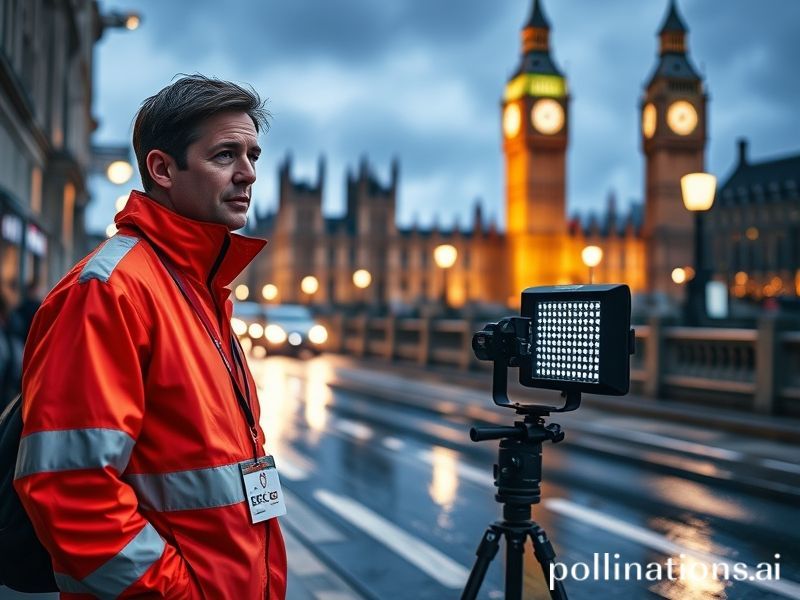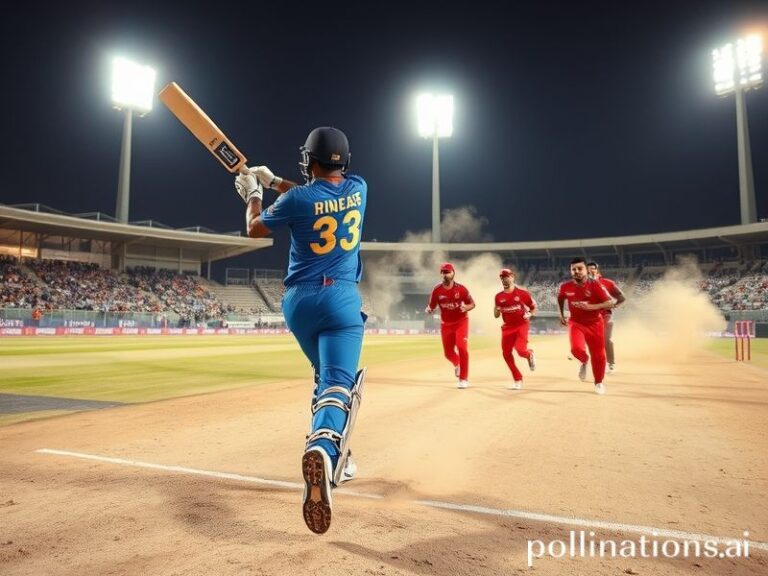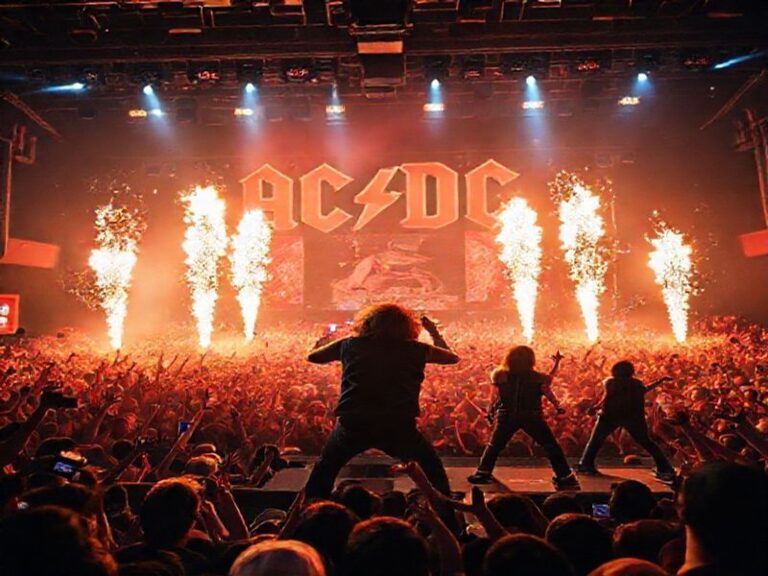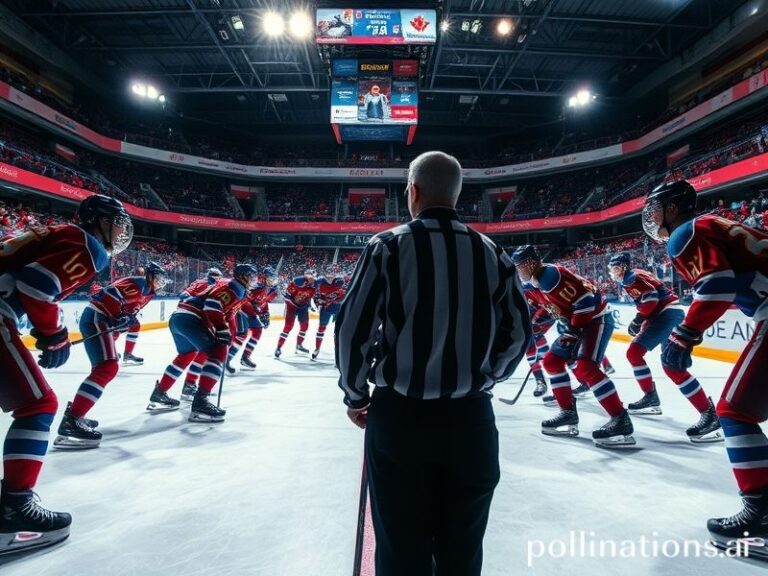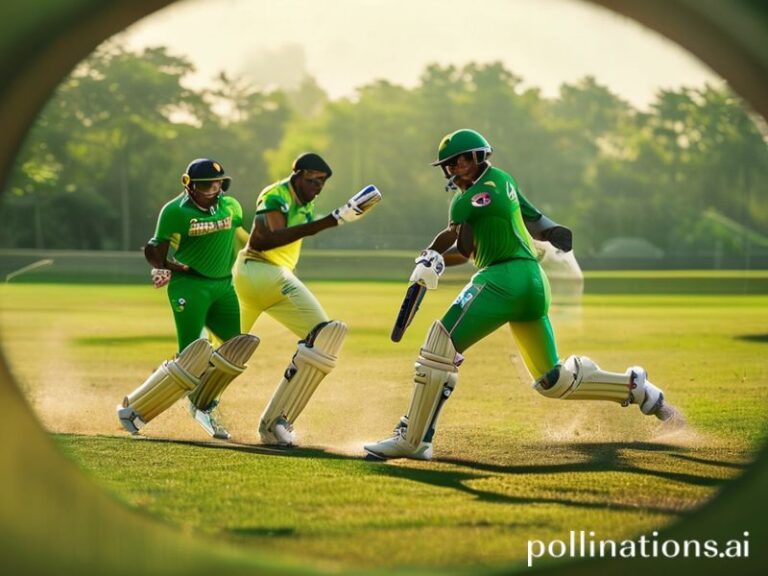BBC News UK: The Last Polite Broadcaster Explaining Collapse to a Cynical Planet
BBC News UK: The Empire’s Last Polite Broadcaster Tries to Stay Relevant While the World Burns
by Our Correspondent in a Café with Suspiciously Imperial Décor, Somewhere East of Calais
The planet tunes in each day—via shortwave, TikTok clip, or the backseat screen of a Delhi Uber—to watch a small island politely explain itself to itself. BBC News UK remains, against all commercial logic, the world’s most trusted brand of controlled British panic. From Lagos trading floors to Tokyo dorm rooms, its chimes still sound like the end of a very civilised era, even when the headline is “PM eaten by own corgis (live updates).”
Globally, the Beeb functions as an anachronistic weather vane: if the UK is obsessing over a junior minister’s WhatsApp tone, it usually means nothing nuclear has happened elsewhere for at least twelve hours. Conversely, when the bulletin leads with “Britain braces for 0.3 mm of snow,” analysts from Buenos Aires to Beijing know the real apocalypse is on commercial break.
The numbers flatter and mock simultaneously. The BBC World Service reaches 365 million souls weekly—roughly the population of Twitter on a righteous day—yet domestic licence-fee revolts threaten to defund the very journalists translating “taking back control” into 42 languages. Foreign diplomats, long resigned to deciphering Whitehall via Radio 4 intonation, now practise a darker art: guessing which budget cut will finally shutter the only British institution still capable of spelling Kyiv correctly without a focus group.
Brexit, of course, provided the broadcaster’s finest absurdist hour. Overseas viewers watched Question Time the way earlier generations watched gladiatorial combat, except the lions were metaphors and the blood was entirely metaphorical—until the pound slid. Each nightly panel became a geopolitical Rorschach test: Washington saw democracy in action, Paris saw a cautionary tale, and Moscow saw free content. In the end, the BBC’s exhaustively neutral tone managed to offend every faction equally, a triumph of balance so exquisite it resembled deliberate nihilism.
Now the themes are darker, the set dressing cheaper. Climate segments open with drone shots of Kent resembling Mordor, segue to a minister extolling “world-leading net-zero waffle,” and close with the weather presenter apologising for tomorrow’s heat death. Abroad, this is consumed as tragicomic opera: the country that industrialised coal now exporting guilt in 4K HDR. Indian news anchors introduce BBC packages with the fond exasperation usually reserved for an elderly uncle who insists on wearing a tie in a heatwave.
Meanwhile, technology gnaws at the monolith. Teenagers in Jakarta learn British slang from TikTok mash-ups of Huw Edwards pausing portentously; the same clips reach Ukrainian bunkers with subtitles about Russian troop movements, proving that gravitas is the last British export not subject to customs delay. Yet the BBC’s own website, desperate for clicks, now serves headlines calibrated for maximum cortisol: “What lettuce lasts longer than a prime minister?” Somewhere in a Silicon Valley boardroom, a product manager takes notes.
The wider significance? In an age when every nation manufactures bespoke reality, the BBC still purports to offer one reality with regional variants. It is less a broadcaster than a coping mechanism for post-imperial melancholia, syndicated globally like Downton Abbey with body counts. Foreign capitals monitor it for early tremors: leadership spill, currency hiccup, or the ritual sacrifice of a chancellor. When the UK finally implodes, historians will note the exact moment the shipping forecast failed to mention Dogger Bank—a silence more chilling than any mushroom cloud.
So as licence-fee rebels and culture warriors brawl over the corpse of public service broadcasting, the world keeps eavesdropping, half horrified, half amused. We watch, we meme, we occasionally trust. And when the last red light atop Broadcasting House winks out, the planet will experience a hush more profound than any midnight chime—followed immediately by 7.9 billion people refreshing Twitter for confirmation. Civilisation, after all, ends not with a bang but with a buffering wheel.

